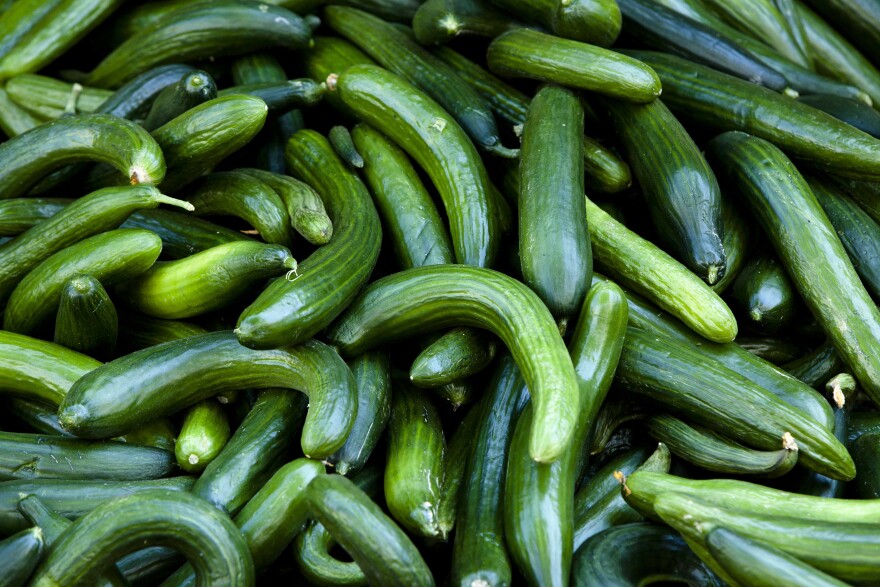BETHLEHEM, Pa. — Federal and state government associations are warning the public of a salmonella outbreak in cucumbers that has already affected 60 people in Pennsylvania.
According to the U.S. Centers for Disease Control and Prevention, a multistate outbreak of Salmonella Africana and Salmonella Braenderup has racked up at least 449 cases across 31 states and the District of Columbia, including at least 60 cases in the commonwealth — the highest count of all.
Of those illnesses, 215 were infected with the newly added Salmonella Braenderup strain, the CDC said.
Illnesses started on dates ranging from March 11, 2024, to June 4, 2024. Of 360 patients with information available, 125 have been hospitalized, with no deaths reported as of Friday.
“The true number of sick people in this outbreak is likely much higher than the number reported, and the outbreak may not be limited to the states with known illnesses," the CDC said on its website. "This is because many people recover without medical care and are not tested for Salmonella. In addition, recent illnesses may not yet be reported as it usually takes 3 to 4 weeks to determine if a sick person is part of an outbreak.”
Interviews with 188 affected individuals showed 129 of them, or 69%, reported eating cucumbers in the week prior — significantly higher than the 50% of respondents who reported eating cucumbers in a FoodNet Population Survey which is used to help estimate how often people eat certain foods linked to diarrheal illnesses.
The Food and Drug Administration’s laboratory and traceback data, along with other epidemiological information, have helped determine that cucumbers from Bedner Growers Inc., of Boynton Beach, Florida, and Thomas Produce Co., of Boca Raton, Florida, are likely sources of illnesses in the outbreak.
The FDA warns that these growers do not account for all illnesses reported in the outbreak.
Being that cucumber growing and harvesting season is over, the FDA reports “There is no product from these farms on the market and likely no ongoing risk to the public.”
Johns Hopkins Medicine reports symptoms of a salmonella infection usually include diarrhea, fever, abdominal cramps, chills, headache, nausea, or vomiting. Treatment may not be necessary unless dehydration occurs, or the infection does not improve.


